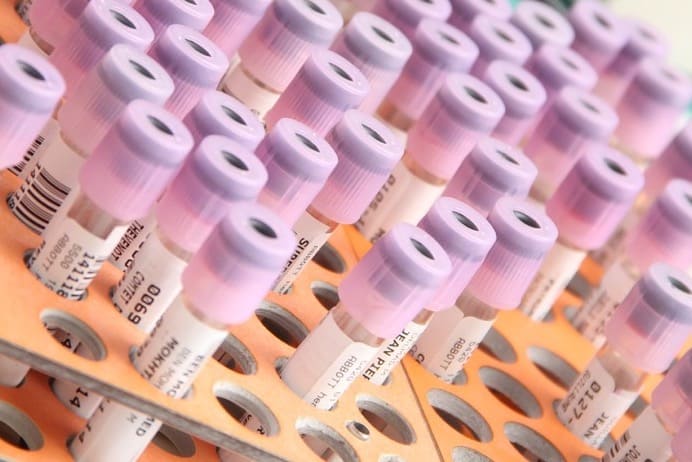Stem cell clinical trials have the potential to treat and cure genetic and degenerative diseases. However, many recent trials have sacrificed scientific quality and health safety to push quicker clinical trials. Concerned researchers advocating for better clinical trial have proposed new guidelines to deter substandard clinical trials.
Stem cells are quickly becoming the hottest trend in clinical trials and commercial health products. There is genuine excitement for the benefits that stem cell therapy can provide for people. Stem cells are our bodies’ natural method of regeneration. They allow for cuts to heal, muscles to grow, and to regulate our aging. Stem cell therapy is a relatively new medical procedure that utilizes stem cell injections into damaged tissues to promote effective regeneration. However, its recent popularity also brought rushed, ethically controversial clinical trials.
Many stem cell clinical trials lack sufficient pre-clinical evidence
There has recently been an explosion in stem cell clinical trials. Yet, many of these clinical trials have not adequately shown to benefit patients the way they claim. Many lacking sufficient pre-clinical evidence to show that they are effective. Some requiring patients to pay to participate in the trial. Moreover, these stem cell clinical trials can be found on government clinical trial websites, which misrepresents them as a scientifically robust clinical trial.
These clinical trials are unethical, which is why clinical trial standards must improve by increasing the standard of scientific rigour. In a perspective report published in Stem Cell Reports researchers from across the globe discuss new guidelines to improve stem cell clinical trials.
Integrating independent ethics boards is necessary
The researchers suggest integrating independent ethics boards during the evaluation process is necessary to raise the scientific and ethical standards of stem cell clinical trials. These ethical boards will review the evidence and goals of the clinical trial to determine if they are scientifically justified and appropriate for human clinical trials. Because of the complexity of stem cell research, a comprehensive overview of stem cell trials is quite challenging. The researchers set three major considerations that would help ethics boards decide if clinical trials are warranted.
Major considerations to determine if clinical trials are warranted
- Stem cell therapy method
Clinical trials should be aware of the type of stem cell assisted regeneration their using. Stem cell therapy can be utilized in two major streams: direct and indirect. Direct stem cell therapy uses stem cell injections at the site of tissue damage for long-term regeneration and integration into the patient’s body. This type of therapy requires long-term follow-ups with the patients to treat any chronic or unforeseen side-effects.
Indirect stem cell therapy uses stem cell injections within the bloodstream to improve normal bodily regeneration. Certain stem cells secrete growth factors which are sensed by the body to reduce inflammation and prevent scarring. Indirect stem cell therapy requires less monitoring than direct because they are not integrated into the patient long-term. Researchers suggest ethics boards should demand which method is performed by the trial and if appropriate measures are taken to protect patients.
- Dosage and length of use of immunosuppressants
Since stem cells are often taken from a donor to be injected into a recipient patient, this may cause immunological complications. It is common for immunosuppressants to be prescribed to patients after stem cell therapy to lower the chances of rejection. This is typically life-long for direct stem cell therapy since they are integrated into the patients’ tissues, and temporary for indirect stem cell therapy since they do not. The researchers caution ethics boards to be aware of the doses and length of use of immunosuppressants to ensure patient safety.
- Evidence that stem cell therapy is better than standard care
Ethics boards should require evidence that shows the provided stem cell therapy is better than standard care. Because of the risks involved in experimental procedures—especially cellular-based treatments—it is critical that every stage of development from stem cell harvesting to processing, to eventual injection, is monitored carefully to stop preventable mistakes from occurring.
Researchers suggest ethics boards should consider incremental dosage protocols to deter unforeseen side-effects, and phased enrollments to minimize overall harm to the patients if side-effects do occur. Additionally, the researchers emphasize that these trials should be adequately funded to restrict patient-funded clinical trials.
Researchers across the globe advocate for stronger integration to ensure patient safety
Stem cell clinical trials have the potential to treat and cure genetic and degenerative diseases. However, many recent trials have sacrificed scientific quality and health safety to push quicker clinical trials. Concerned researchers from across the globe have advocated for the stronger integration of independent research boards within stem cell clinical trial assessments. This may help ensure patient safety and proper scientific and health standards, lest we repeat the disastrous rushed approval of thalidomide in 1961, which caused hundreds of birth defects across Canada. The science of stem cell research is slow but promising.
Written by Aaron Kwong, MSc
Reference: Barker, R. A. et al. The Challenges of First-in-Human Stem Cell Clinical Trials: What Does This Mean for Ethics and Institutional Review Boards? Stem Cell Reports 10, 1429–1431 (2018).



